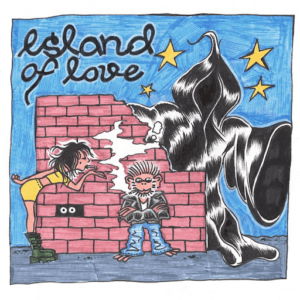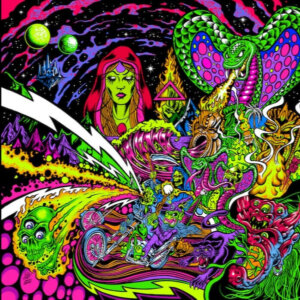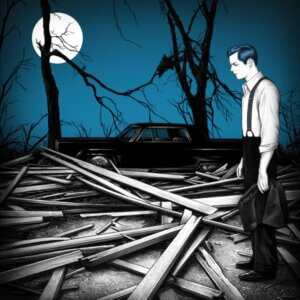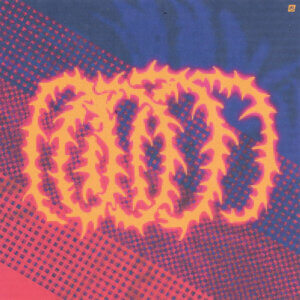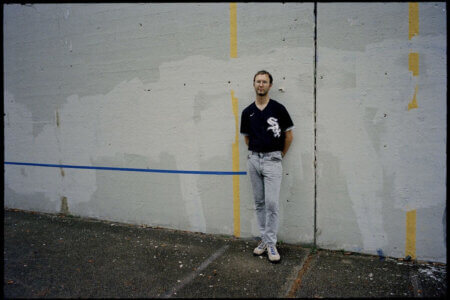
8
Cartwheel
Hotline TNT
Hotline TNT’s second album and Third Man Records debut, Cartwheel, is a roiling cycle of sadness and optimism. Primary songwriter Will Anderson (who played almost every instrument on the album) needs to cling to optimism because it’s a lifejacket for an eternal romantic like himself.
In case our you missed them: We are revisiting our favourite albums of 2023.
The 34-year-old New York City-based musician has spent most of his adult life chasing love. It’s come and gone for him as well as his parents, who separated after having been together for 30 years. The cumulative blows of his heartbreaks and the dissolution of his parents’ union have rocked his foundation, directly informing Cartwheel’s unsteady restlessness.
On Cartwheel, Anderson longs for, regrets, and revels in love. This tumult of emotions propels the album and keeps him steady through every revolution as much as his unwavering conviction that stability is attainable does. Anderson hopes the happy moments will last. At the very least, he hopes everything will remain civil between everyone involved, even if it means he has to take the blame: “Which side I’m on / Don’t matter if you’re gone / … / After the fall / I pretend that it’s all / My fault,” he sings as languid guitar chords and drum beats tumble like boulders and grind against each other like tectonic plates, choking out gasping synth, on the seismic “Protocol.”
On the surface, Cartwheel sounds like music for the melancholic. Yes, it bursts with yearning; it droops with lilting, fuzzed-out distortion. But despite its layers of sound, it doesn’t take deep listening to excavate Anderson’s gift of melody. Bringing his singular vision to Cartwheel, Anderson continues doing what he’s done best since regularly packing out DIY spaces across Vancouver fronting sludgy Vancouver rock unit Weed: writing dense, crackling earworms that feel intimate despite their blown-out grandeur. Take the glistening “Stump,” for example, a perfect backdrop as he fondly reminisces about his adolescence. “I Thought You’d Change” is Cartwheel’s most explosive song, and it strikes an unforgettable sweet spot between heartache and optimism.
“I Thought You’d Change” also embodies one of Cartwheel’s best qualities: the songs often give sonic shape to Anderson’s emotions. Sometimes, his lyrics are difficult to discern among the slabs of distortion. But their meaning isn’t always clear to him either. He admits he’s unsure which of the song’s alternating narrator is him. The lyrical ambiguity for the listener mimics the lack of clarity for Anderson. Fragments of clear lyrics hint at what the narrators are trying to say, but their meaning is like the love for which Anderson strives: when it seems attainable, it slips away, sometimes for unknown reasons. Right when the listener thinks they understand what the narrator’s saying, the next line comes in obscured, upending any previously perceived understanding.
Cartwheel would be a boring album if Anderson resigned himself to guilt, indolence, or hopelessness. But he refuses to allow misery to swallow him. A wheel that stays in motion always has a chance of remaining stable if it pivots at the right times, and with his latest album, Anderson has made the right move. How far it’ll take him remains to be seen, but like Anderson, listeners can be optimistic.
Pre-order Cartwheel by Hotline via Third Man Records (Jack White) TNT HERE
Latest Reviews
Tracks
Related Albums
Related News
Advertisement
Looking for something new to listen to?
Sign up to our all-new newsletter for top-notch reviews, news, videos and playlists.






